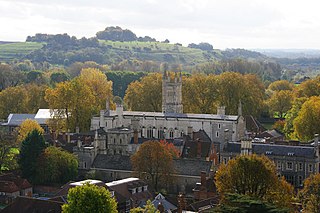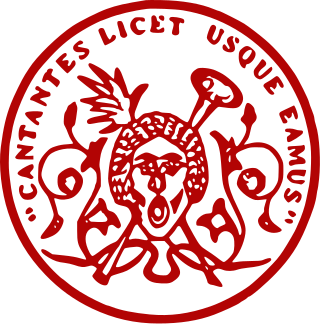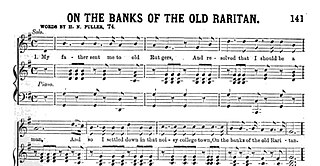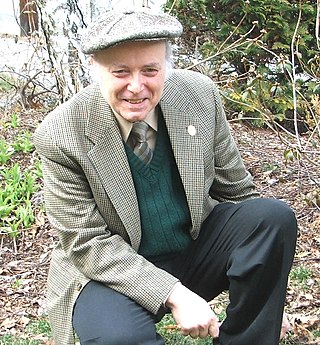
Winchester College is an English public school with some provision for day attendees, in Winchester, Hampshire, England. It was founded by William of Wykeham in 1382 as a feeder school for New College, Oxford, and has existed in its present location ever since. It is the oldest of the nine schools considered by the Clarendon Commission. The school has begun a transition to become co-educational, and has accepted male and female day pupils from September 2022, having previously been a boys' boarding school for over 600 years.

Sir Henry Walford Davies was an English composer, organist, and educator who held the title Master of the King's Music from 1934 until 1941. He served with the Royal Air Force during the First World War, during which he composed the Royal Air Force March Past, and was music adviser to the British Broadcasting Corporation, for whom he gave commended talks on music between 1924 and 1941.

A glee club is a musical group or choir group, historically of male voices but also of female or mixed voices, which traditionally specializes in the singing of short songs by trios or quartets. In the late 19th century it was very popular in most schools and was made a tradition to have in American high schools from then on.
The Hangovers are a men's collegiate a cappella ensemble based at Cornell University. Founded in 1968, they are the oldest active a cappella group on campus and are the official a cappella subset of the Cornell University Glee Club, itself the oldest student organization of any kind at Cornell University. The Hangovers' repertoire consists mainly of popular songs arranged for the ensemble by its members and alumni, but the group also performs traditional Cornell songs, as well as selections from the Glee Club repertoire on occasion.

The Cornell University Glee Club (CUGC) is the oldest student organization at Cornell University, having been organized shortly after the first students arrived on campus in 1868. The CUGC is a thirty-nine member chorus for tenor and bass voices, with repertoire including classical, folk, 20th-century music, and traditional Cornell songs. The Glee Club also performs major works with the Cornell University Chorus such as Beethoven's Missa Solemnis, Handel's Messiah, and Bach's Mass in B Minor.

"Give My Regards to Davy" is Cornell University's primary fight song. The song's lyrics were written in 1905 by Cornell alumni Charles E. Tourison (1905), W. L. Umstad (1906), and Bill Forbes (1906), a trio of roommates at Beta Theta Pi, and set to the tune of George M. Cohan's "Give My Regards to Broadway".

"Far Above Cayuga's Waters" is Cornell University's alma mater. The lyrics were written circa 1870 by roommates Archibald Croswell Weeks, and Wilmot Moses Smith, and set to the tune of "Annie Lisle", a popular 1857 ballad by H. S. Thompson about a heroine dying of tuberculosis.

The Harvard Glee Club is a 60-voice, Tenor-Bass choral ensemble at Harvard University. Founded in 1858 in the tradition of English and American glee clubs, it is the oldest collegiate chorus in the United States. The Glee Club is part of the Harvard Choruses of Harvard University, which also include the treble voice Radcliffe Choral Society and the mixed-voice Harvard-Radcliffe Collegium Musicum. All three groups are led by Harvard's current Director of Choral Activities Andrew Gregory Clark.
Cornelliana is anything related to Cornell University, an Ivy League university founded in 1865 in Ithaca, New York, United States. The university has a considerable number of traditions, legends, and lore unique to the university that have developed over its existence, which spans over 150 years.

"Carmen Ohio" is the oldest school song still used by Ohio State University. The song was composed by freshman athlete and Men's Glee Club member Fred Cornell in 1902 or 1903. According to some accounts, he composed it on the train ride home from Ann Arbor, Michigan after Ohio State suffered an 86-0 loss to the Michigan Wolverines. The song is set to the tune of "Spanish Hymn", or "Spanish Chant". The Men's Glee Club first performed it in 1903; however, it did not gain popularity until after its publication in The Lantern on October 10, 1906. At the following Ohio State–Michigan football game on October 20, 1906, "Carmen Ohio" was published in the program. In 1915, Cornell recalled that he wrote the song in 1903 at the request of the Men's Glee Club, and other family members later stated that the train story might be an exaggeration or outright fabrication. Currently, after every home football game in Ohio Stadium, win or lose, the football team and the crowd sing the first verse of Carmen Ohio, accompanied by The Ohio State University Marching Band. It is also sung by new graduates at the end of the university's commencement ceremonies, after diplomas are distributed.

The Cornell University Chorus was founded in 1920 as the Cornell Women's Glee Club. The Chorus is a sixty-member treble choir with a repertoire that includes masses, motets, spirituals, classical, folk, 20th-century music, and traditional Cornell songs. The Chorus also performs major works with the Cornell University Glee Club such as Beethoven's Missa Solemnis, Handel's Messiah, and Bach's Mass in B Minor and St Matthew Passion.

"On the Banks of the Old Raritan" is a song, or alma mater, associated with Rutgers, The State University of New Jersey, in the United States. The original lyrics were written in 1873 by Howard Newton Fuller, an 1874 graduate of Rutgers College. Fuller quickly prepared the song as a school hymn for the college's Glee Club, an all-male choral ensemble, before a performance in Metuchen, New Jersey. Fuller chose to set the lyrics to the tune of melody, "On the Banks of the Old Dundee", a popular Scottish melody regarded as a drinking song, and titled the song for the Raritan River.

The Virginia Glee Club is a men's chorus based at the University of Virginia. It performs both traditional and contemporary vocal works typically in TTBB arrangements. Founded in 1871, the Glee Club is the university's oldest musical organization and one of the oldest all-male collegiate vocal ensembles in the United States. It is currently conducted by Frank Albinder.
"The Red and Blue" is a popular song of the University of Pennsylvania, a private Ivy League university in Philadelphia.

"Hark the Sound" is the alma mater (song) of the University of North Carolina. It was written by William Starr Myers, a member of the UNC Glee Club at the time. It is sung at the end of athletic events and other university gatherings, and is one of many alma maters set to the music of "Annie Lisle".

The Syracuse University Alma Mater is the school song for Syracuse University. It was written by Junius W. Stevens in 1893, and is based on the then-popular Irish melody Annie Lisle. It was first sung under the title "Song of Syracuse" by the University Glee and Banjo Club on March 15, 1893 at the Wieting Opera House.

The Ohio State University Men's Glee Club is an all-male choral ensemble at Ohio State University. Officially founded in 1875, the Men's Glee Club is one of the oldest student organizations on Ohio State's campus and one of the oldest collegiate glee clubs in the United States. The group has garnered many accolades, most notably winning Choir of the World 1990 from the Llangollen International Musical Eisteddfod.

Roger Lee Hall is an American composer and musicologist.

William A. Penno (1843–1929), known by his stage name William A. Huntley, was a composer, music teacher, and vocal and instrumental performer in minstrel and vaudeville traditions. Playing his 5-string banjo before crowds that came to number in the low thousands, he sang in a high tenor and played his banjo bare fingered, picking the strings in a style today named "classic banjo." His published compositions include banjo instrumentals and parlor music. Huntley spent his working life performing and teaching in the off season. He performed throughout the United States and toured Europe as a part of several different minstrel groups. A highlight of his performing career was to play before the Prince and Princess of Wales, about 1880 at Her Majesty's Theatre in London. He moved away from minstrel shows by the 1880s, and "took pride" that he could perform without blackface stage makeup. He focused on building respectability for the banjo, through teaching, composition, and performance recitals. He was featured in the S. S. Stewart Company's catalog and began to play the company's banjeaurine. In 1888 he performed before a crowd of 2,000 people in his hometown, Providence, Rhode Island.

Arthur Wells French (1846–1916) was a journalist from Connecticut who was also a successful songwriter of sentimental songs in the 1870s and 1880s. Born in Monroe, Connecticut, he moved to Bridgeport as a young man. He was inclined to write, especially songs and poetry, "and this natural bent early led him into a newspaper career." His most successful work may have been "Little Sweetheart" sung by minstrel tenor Dave Wambold, which sold "several hundred thousand...copies" of sheet music.

















